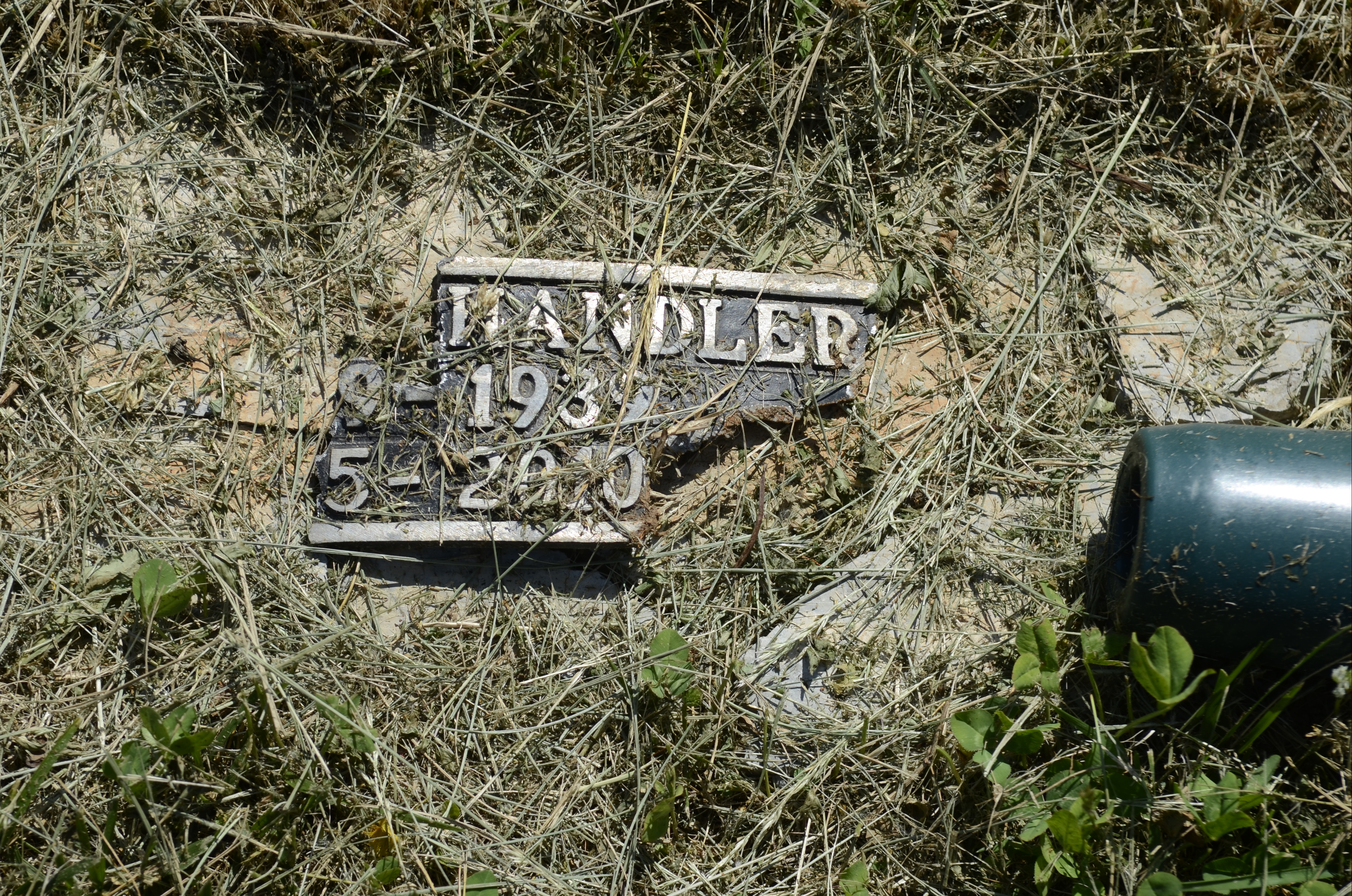Even dead, they suffer.
At Ruth Cofer Cemetery -- the grassy potter's field where our county buries its homeless and poor -- gravestones are damaged, overturned and neglected under layers of grass clippings, dirt or fire-ant hills. Some gravestones are missing altogether.
The cement block gravestones are buried into the ground, level with it, not sticking up vertically like most cemeteries. Each gravestone has -- or should -- a thin metal nameplate attached to it that gives basic inventory to the lives of each person buried: name, date of birth and date of death.
Some name plates are missing altogether. Others are no longer fastened to the gravestones, able to be picked up and moved around, like a Grim Reaper's game of three-card monte.
Name plates have been shredded and ripped in half, leaving graves unreadable or unrecognizable.
A first name, but not a last.
A last name, but not a first.
A date of death, but not of birth.
Emmett B. Grif one reads.
Illiams, Sr.
Yvonne Hu
Raymon
One gravestone is overturned completely, the name -- Mary E. Dorman -- facing not toward the sky but into the dirt.
This is not vandalism.
It is neglect.
"We just mow it and weed-eat," said Steve Wilson, who works for Hamilton County's maintenance department.
Wilson said a crew goes to Cofer every six or seven days. I asked him why Cofer was in such shape, and why the nameplates and gravestones seem chewed up from mower or bush hog blades.
He told me they didn't bush hog, then to call Mike Dunne, county spokesman.
Instead, I called Brother Ron Fender, the Gregorian monk who took me to see Cofer several days ago.
"We as a community need to realize it is sacred ground," he said. "It's not a dumping ground."
When he was case manager at the Community Kitchen, Fender presided over many burials at Cofer. Inmates from the nearby prison would serve as pallbearers, lowering into the red dirt ground a coffin made of cheap pressboard.
There was Igor, the Russian Army veteran who lived in a camper behind Big Lots and played guitar for drinks at a local pub.
And gentle Edward, who lived in a tent and once rode his bike nine miles, one way, on Christmas morning to bring Fender a box of candy.
Precious Myangel, who died on the same day she was born.
And Ricky, who killed himself.
"He was only 31," Fender said.
Hundreds more are buried there, in the 40-acre cemetery near Jenkins Road, with Interstate 75 on the horizon. Last fall, Fender visited the cemetery; the damage then was far worse than what we saw last week.
"Everywhere," he said.
The bottom half of the cemetery has been repaired, at least somewhat. Old cement block gravestones have been replaced with new ones, yet instead of sinking them into the ground -- grass-level, like a yardage marker at a golf course -- county workers have placed them on top. You could pick one up and move it. Steal it. Toss it into the woods.
Friday afternoon, I spoke with Mike Compton, the mayor's straight-shooting chief of staff.
"Our guys have screwed that up," he said. "They must be cutting it wrong. And if they are, I take full responsibility for it. We're screwing it up and we're going to fix it."
How long?
"I've got to figure out what the damage is first," he said. "Certainly no more than a month."
Last October, realizing the cemetery was reaching capacity, the county contracted with local funeral homes to cremate the bodies. County Attorney Rheubin Taylor said there have been approximately 20 cremations since then, each costing around $200; in all but three cases, the remains have been claimed by families of the deceased.
The remaining ashes are being stored "in a secure county facility," Taylor said. "I don't know exactly where."
Don't ... know ... where.
They get lost, the homeless and poor among us. Yet even in death, we should be able to offer them the dignity of burial. The least of these, at least buried with respect and the promise to maintain their graves, from now till kingdom come, with compassion. When that happens, Cofer is one of the most sacred places in Hamilton County.
When it doesn't, we too lose a part of who we are.
"How we treat that cemetery is not about the dead," Fender said. "It's about us."
Contact David Cook at dcook@timesfreepress.com or 423-757-6329. Follow him on Facebook and Twitter at DavidCookTFP.



